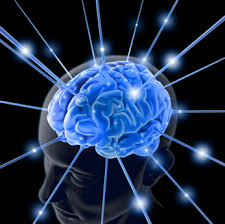Health Tip - Headache





There are three main causes of Primary Headaches:


What is a Headache?
A Headache is a pain sensed in the nerves and muscles of the head and neck a continuous pain in the head.
Headache means "Pain in various parts of the head, not confined to the area of distribution of any nerve."
Headache is also known as Cephalalgia. Cephalalgia comes from the greek kephale meaning "head" and algos meaning "pain."
A Headache is a warning sign that something is wrong in your body.
Everyone in the world has had at least one Headache in their lives. Some people never get them, while others have them almost every day.
Headache Facts:
Headache Facts:
- 90% of people suffer from headaches and only 1% have a serious underlying problem;
- Primary headaches account for more than 90% of all headache complaints;
- Women are three times more prone than men to suffer from migraine headaches;
- Children can suffer from the same types of headaches as adults, with an additional headache due to dental braces and orthodontic headgear.
There are two main reasons why people get Headaches:
- Primary Headaches - migraine, tension and cluster
- Secondary Headaches - are those that are due to an underlying structural problem in the head or neck (bleeding in brain, tumor, meningitis and encephalitis).
Cranial Neuralgias, facial pain, and other Headaches
There are three main causes of Primary Headaches:
- Migraine Headache
- Tension Headache (see below)
- Cluster Headache:
- Run in families (genetic)
- May be triggered by changes in sleep patterns
- May be triggered by medications
Secondary Headaches result from a symptom of an injury or an underlying illness in the body.
Brief Definition of Headache Types:
Common Types of Headaches (Medical Dictionary -www.medilexicon.com):
- Chronic Tension-Type Headache - results from stress or fatigue, physical problems, psychological issues or depression;
- Migraine Headache - results from and inherited malfunction/family history;
- Cluster Headache - results from the change in season (spring or autumn), frequently surface during the morning or late night, lasting weeks or months;
- Hormone (Menstrual Migraine) Headache - occur before, during or immediately after a woman's menstrual period, or during ovulation, caused by a change in estrogen levels;
- Pre-Menstrual Syndrome (PMS) Headache - occurs before a woman's period;
- Rebound Headache - occurs as a result of over-use of medications-exceeding labeling instructions or physicians advice.
Symptoms of a Headache is pain in the head above the eyes or the ears, behind the head (occipital), or in the back of the upper neck.
Common Types of Headaches (Medical Dictionary -www.medilexicon.com):
- Bengin exertional
- Bilious
- Blind
- Cluster
- Coital
- Drug-induced
- Fibrositic
- Histamic
- Horton
- Ice pick
- Idiopathic stabbing
- Medication-overuse
- Migraine
- Muscle contraction
- Nodular
- Organic
- Post traumatic
- Reflex
- Sick
- Spinal
- Symptomatic
- Sinus
- Stress
- Tension
- Thunderclap
- Vacuum
- Vascular
Lets Talk about the most common Headache
Tension Headaches are the most common, and generally affect adults and adolescents, they can affect younger children.
90% of adults have had or will have tension headaches.
Tension Headaches occur more commonly among women than men.
Tension Headaches are caused by muscular strains in the head and neck and/or emotional stress. Tension headaches are usually dull, steady, aching pains on both sides of the head. Sometimes developing into throbbing pains.
Tension Headaches are caused by muscular strains in the head and neck and/or emotional stress. Tension headaches are usually dull, steady, aching pains on both sides of the head. Sometimes developing into throbbing pains.
Causes of Tension Headaches:
- Stress
- Depression
- Anxiety
- Bad posture
- Staying in one position for a long time
- Working in an awkward position for a long
- Clenching one's jaw
Symptoms of Tension Headaches:

- Pain begins in the back of the head and upper neck and is described as a ban-like tightness or pressure;
- Pressure encircling the head with intense pressure over the eyebrows;
- Mild pain affecting both sides of the head;
- Nausea, vomiting, or sensitivity to light and sound;
- Pain occurs sporadically but can occur frequently and even daily.
How are Tension Headaches Treated (over-the-counter):
- Aspirin
- Ibuprofen (Motrin, Advil)
- Acetaminophen (Tylenol) and
- Naproxen (Aleve)
Listen  to your body recurrent Headaches should be a signal to seek medical help.
to your body recurrent Headaches should be a signal to seek medical help.
For more information go to www.livestrong.com, www.WebMD.com, www.health.howstuffworks.com, www.medicalnewstoday.com, www.medicinenet.com, www.wikipedia.org, www.headaches.org, or www.ask.com
Remember!
Information is Power!
Live well
Doc V




No comments:
Post a Comment